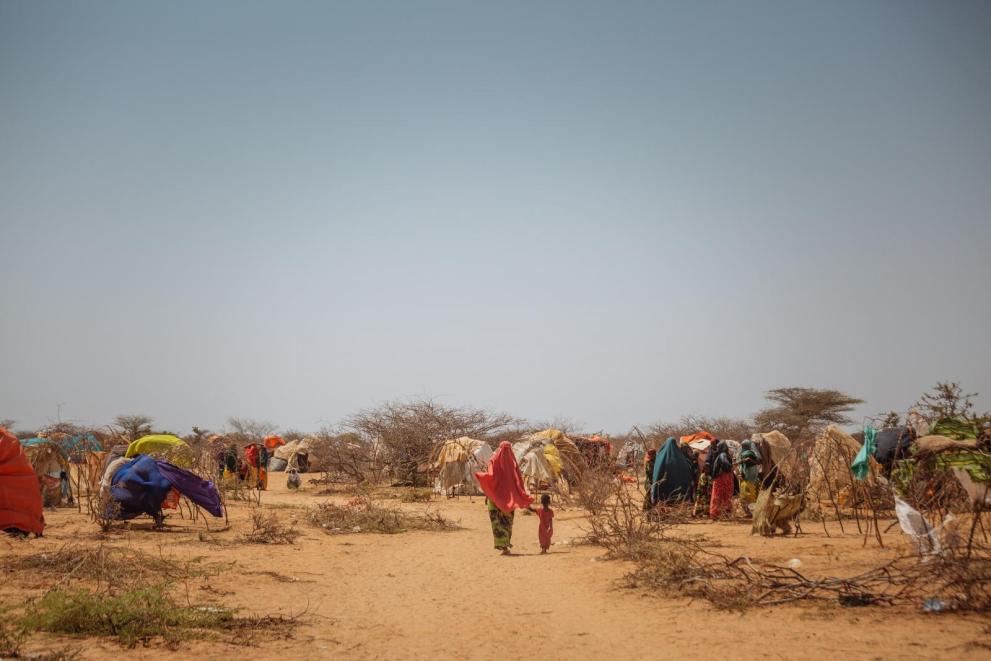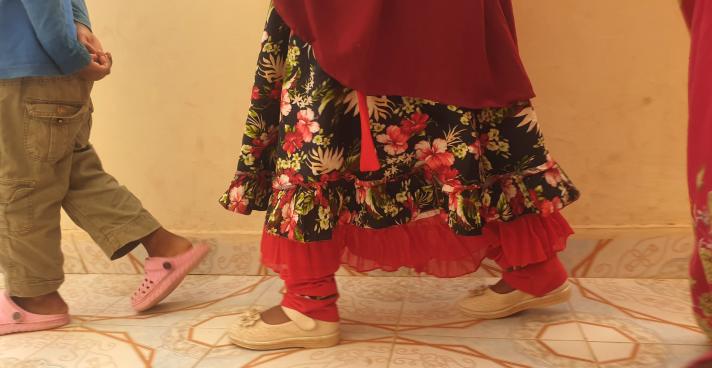
Approximately 450,000 children are on the move in Somaliland each year. ‘These children face a number of risks, from child marriage, rape and sex-trafficking to mental health problems and even death’, says Lawrence Oduma, UNICEF Project Manager responsible for the Children on the Move Programme.
‘Somalia is one of the ten poorest countries in the world’, notes Lawrence Oduma, ‘and some children see no other option than leaving their home and family to find a better life. Many are under 18, and some are as young as 10.’ Most of them are from conflict-stricken parts of Somalia, Yemen and Ethiopia.
Improving the referral process
‘For a long time, it was hard to identify unaccompanied minors, and if by chance they were recognised as unaccompanied minors, we didn’t know how to deal with them,’ says Yasin Abdi, Chair of Somaliland’s Mixed Migration Task Force (MMTF). ‘I witnessed many instances of a child being identified as a migrant or a victim of trafficking but kept at a police station for days, along with criminals who had been arrested. The police didn’t know where to take them or how to protect them from the risk of smuggling or other violations,’ adds Yasin Abdi. ‘There was also a lack of trust and cooperation between organisations and authorities, which hampered the assistance to the children.’
The MMTF coordinates all the actors involved in managing migration in the region. In 2019, it established a national referral process to improve the identification and protection of and provision of assistance to vulnerable migrants, including children and victims of trafficking. Supported by the Better Migration Management programme, it has developed the capacity of relevant governmental and non-governmental organisations and improved collaboration between them. ‘The main approach was to assist victims of trafficking to access services according to their needs and rights as well as to involve them in investigations against the traffickers’, Yasin Abdi explains, ‘so we brought together all the agencies; we learned together, we trained together, and we managed to build up trust.’
‘The referral process has created strong collaboration between the child protection agencies,’ confirms Abdullahi Mohamed Jama, Director of Women’s Action for Advocacy & Progress Organization (WAAPO), a local non-governmental organisation collaborating with UNICEF. He precises: ‘Now we know which agency specialises in which service, and so do the officials at police stations, border officers and desk officers within the authorities. Now, if a child is identified as a victim of trafficking, it is much easier to refer them to the nearest safe house for shelter, food and protection or to provide legal services.’
WAAPO manages a safe house in Hargeisa, which hosted some 305 children in 2020. ‘We are supporting WAAPO and other partners to provide the children with counselling, pre-school education, art therapy sessions, drama and play activities, and many other initiatives.’ Lawrence Oduma says.
Collaboration saves lives
Lawrence Oduma tells the story of two girls from Somaliland who were trafficked from Hargeisa in October 2019 without their families being aware of it: The girls were told they were going to find a better life, but the reality was that they were being trafficked to the northern Somali state of Puntland.
At the border with Puntland, a police officer spotted the girls with a man. The officer had been trained in screening and referral of trafficked children and interviewed the girls in a child-sensitive way. It turned out that they had been trafficked by the man, who was immediately taken into custody. The girls were transferred to Puntland’s Ministry of Women Development and Family Affairs, which then sent them to a safe house managed by another UNICEF partner, TASS.
The ministry was able to trace the girls’ families and reunite in Hargeisa. ‘These girls were at considerable risk being abused and exploited’, concludes Lawrence Oduma. ‘The training officers received and the cross-border collaboration between governmental agencies and local partners plays a critical role in protecting children on the move.’
Background:
The Better Migration Management (BMM) programme supports the Somaliland Mixed Migration Task Force in establishing the referral process to improve the identification and protection of and assistance to vulnerable migrants and victims of trafficking. BMM has trained relevant governmental and non-governmental actors and provided guidance materials. The programme is funded by the European Union through the EU Trust Fund for Africa and the German Federal Ministry for Economic Cooperation and Development (BMZ).
Details
- Publication date
- 20 September 2021
- Region and Country
- Horn of Africa
- Somalia
- Thematic
- Improved migration management
- Partner
- GIZ

